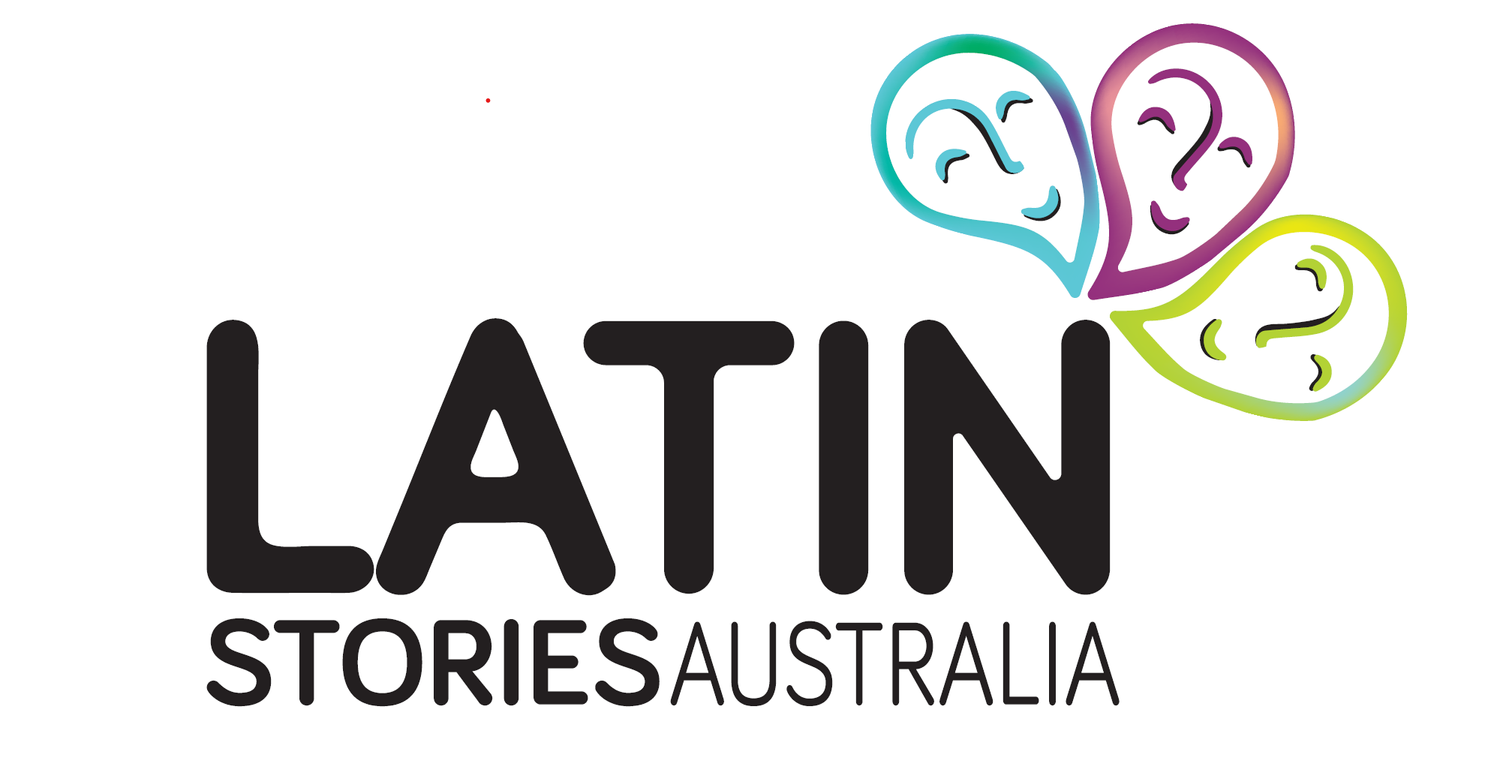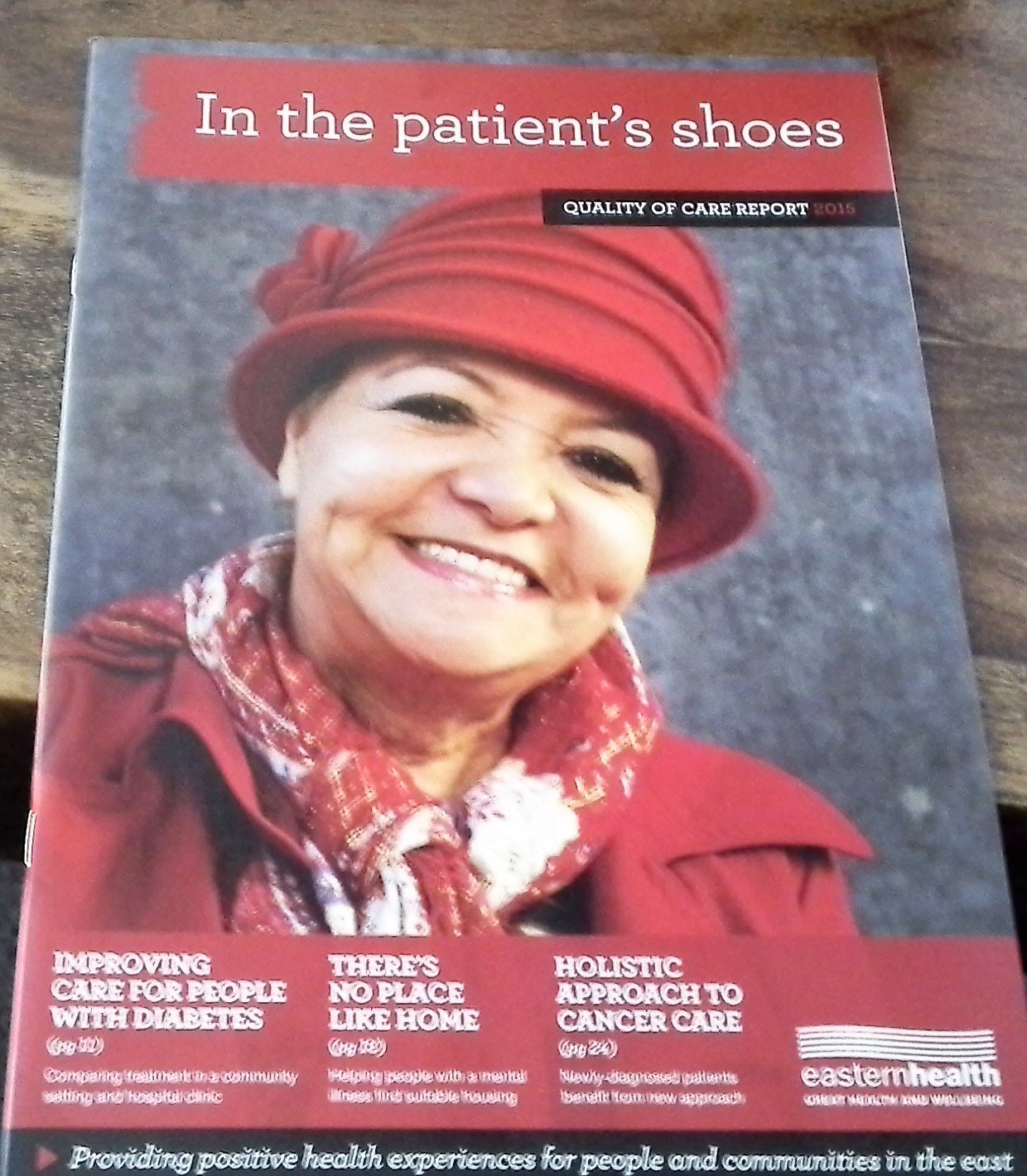Meyi Cuellar
“WE ALL HAVE A STORY TO TELL”
Meyi Cuellar
Country of origin: Mexico.
Occupation: Writer. State of residency: VIC. Favourite place in Australia: Melbourne. Upon arrival: Surprised by how difficult it is to learn to speak English at our age.
Edited by Zoe Gleeson.
Meyi Cuellar is a prolific writer, thinker and advocate. Her writing workshops originated in Mexico and are now a staple in her life in Melbourne. Meyi has given motivational talks to writers in the libraries of Frankston and Clayton and has participated in several festivals as a singer of ranchera music. She was on the cover of Eastern Health magazine, in an article called ‘In the patient’s shoes’ which detailed her health journey. With the support of her family and her community, Meyi navigated the challenges of her health and continued to write and publish her stories.
TELL US YOUR STORY
It all started in 1996, the date my grandson was born in Melbourne. It was my first trip to Australia. After three months my husband came and we both fell in love with this country. We applied to come as immigrants, we carried out the medical exams, we sold our company in Mexico, we did the pertinent paperwork so that our application was accepted, but unfortunately the process stalled, and we never knew the reason. For ten years we made trips to Australia to be close to our daughters. During those visits, I took the opportunity to work as a volunteer in ZZZ, a community radio broadcaster and in Antena Hispana through TV Channel 33. I also participated in both Australian and Latin festivals performing the ranchera music, of course with my charro dress. After almost 14 years we received a phone call from our two daughters who live in Australia, informing us that they had received the immigration papers asking if we still wanted to immigrate to this country. The answer was yes! In November 2009 we arrived in Australia with the family reunion visa.
We started working cleaning offices, until I was diagnosed as diabetic. I was told to register for the NDSS. At the end of the documents that I had to fill out there was a section that asked if you would like to participate in a study at Monash University in conjunction with Alfred Hospital about diabetes and I answered yes. A few months later, the researcher prescribed me two new medications, the same ones that millions of patients take in the world. However, in me they caused a disease called Eosinophilia Facitis, only 324 cases are registered in the world, (according to the internet) and without much research for its cure. In my case it affected the lower extremities and later the arms. I had to be in the Royal Melbourne Hospital for a month and in the Rehabilitation Center of the same institution for two months. I was inaccurately given a final diagnosis that I would never walk again. However, my desire to return to my old life, a lot of determination, pain and perseverance was the antidote for not letting myself be defeated and I walked again.
Meyi singing in a nursing house
I made the decision to write the entire process of my recovery, from which came the Alien saga, a trilogy made up of “My Alien and Me”. The presentation of the book was in the Parliament of Victoria and two MPs opened the event. “The Embrace of the Alien” the presentation of the book was at the Royal Melbourne Hospital; several specialists and the director's representative spoke on the podium. My most recent book, "E. F. I am the Alien”, was written during the pandemic, and therefore there was no presentation. I like to write because I firmly believe that ‘we all have a story to tell’. In Mexico I wrote three novels. My main activities carried out in my country were in the area of communications as coordinator and editor of programs television, radio and magazines; and I also taught Writing Workshops.
In our first year as residents in Australia, we published and presented the book “Ansias de Vivir” by the Spanish poet Alfredo Muñoz with great success. We then went on to register our business as Multilingual Fringe Writers. Here in Australia I continued to carry out a Writing Workshop as I did in Mexico. For this purpose, I brought together five women from different Latin countries to tell their migratory history. As a result, we published a bilingual book (Spanish-English) called "Five Women and One Destiny”. It was presented at the Frankston Library and is in the Canberra and Melbourne Libraries. In the second workshop with Latino participants, the book “Retazos de Memoria” was also published. Furthermore, together with my husband, we have published several books by authors from the Spanish-speaking community.
CHALLENGES
Support - Starting in a strange country, with another language, customs, food, trying to make new friends and in my senior years was quite an odyssey. There was a price to pay and we were aware of that. However, having two daughters living in Australia, made my general adaptation easier and faster. Their support was vital and very valuable. I will be grateful forever. Furthermore, the Colombian, Spanish, Chilean, Peruvian and other Latin American friends were the emotional and work support that was so much needed at the beginning.
Health - The second major challenge was my rare disease. The invaluable medical care I received and continue to receive from specialists from different branches at the Royal Melbourne Hospital. Walking again meant a great effort and I achieved it, however I also owe this success to the selfless help of many people whom I call "the anonymous", people who lend a hand in the simplest and most elementary things you need. Volunteers from different institutions who come to you to advise and motivate you to use the support services for people with different abilities, as I call those who suffer from a disability. Additionally, the adequate infrastructure in any street in Melbourne made my life more bearable, when I did not walk. This allowed me to travel in a wheelchair or scooter.
CONTRASTS
Punctuality - One difference or contrast is punctuality. Of course, the most difficult to adapt. The custom in my country of being late is deeply rooted. Despite the fact that from school we are given schedules that we must comply with, we do not permanently develop this discipline. I already learned. Now I am very punctual with my Australian commitments and flexible when it comes to Latin countries.
Privacy - Another important contrast is respect for privacy. In my country we can make the decision to go to someone's house without warning and without taking into account the time. Today I always plan my visits in advance and of course always with the approval of the other person.
Cleanliness - The culture of cleanliness is evident in this country. In any environment, very crowded or not, cleanliness is seen, felt and breathed. This is also part of the quality of life.
PIECE OF ADVICE
Think twice - by this I am referring to the fact that the most important thing in a decision of such magnitude is to carefully evaluate each and every one of the aspects that concern a significant life change, especially the emotional ones.
Get involved - First, get involved in Australian society. Once this step has been completed, you must commit to giving the best of yourself for your personal development and in making the most of your adaptation. Undoubtedly, success will be achieved if these premises are pondered.
Confidence - Stop doubting, overcome fears, gain confidence. The decision has already been made, now you have to remain emotionally firm to achieve a positive ending - "If things were easy, anyone would get them."
Meyi with her family as part of the “Building Bridges” Latin Stories Australia’s exhibition
IN THE NEXT FEW YEARS…
In the near and not so near future Meyi hopes to see the books she has written, published and above all read, by many people. With this she believes that she will motivate more people to write the stories that make up their lives and share them with their loved ones and the community. For this, she is carrying out several actions aimed at making her work known through social networks.




